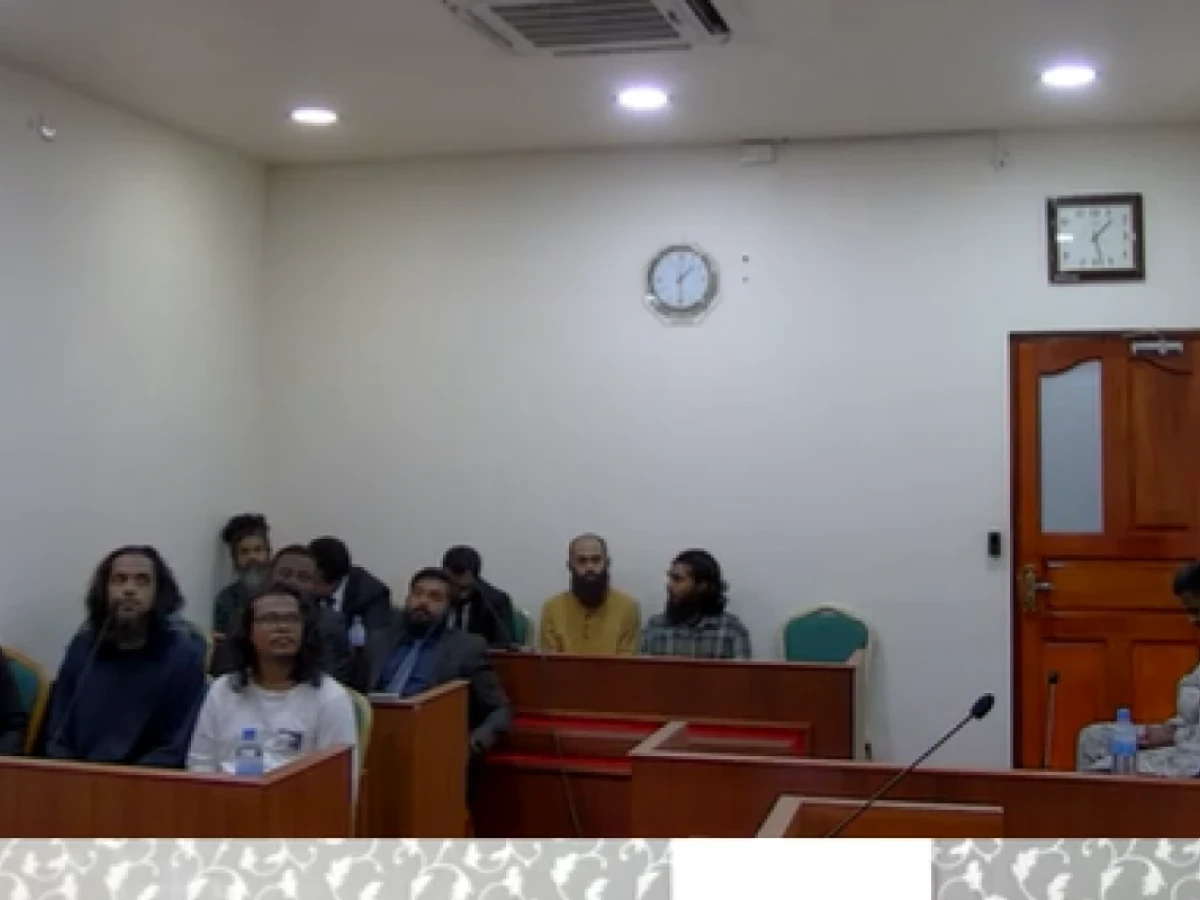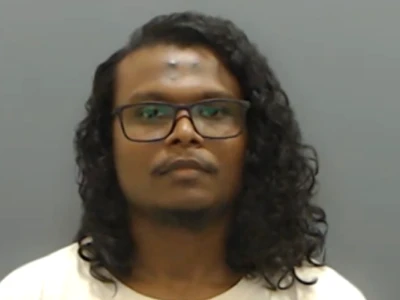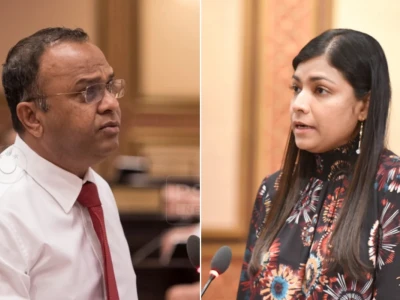
May 6 blast: Ishaq seeks all documents on investigation
Judge Sofwath Habeeb ruled with witnesses in the court and the fact that this stage was not a stage in which such a request could be made.
Top Stories
By
Fathmath Ahmed Shareef
Attorney of Ishaq, one of the suspects in the blast that targeted speaker Mohamed Nasheed, told the court on Tuesday that he has requested the parliament for an inquiry report prepared by the committee on security services in connection with the blast.
Ahmed Yameen said he would also request the Prosecutor General's (PG) office to obtain all the documents of the case that the police have.
Trials against six people in connection with the May 6, 2021 attack on Nasheed are ongoing. Of these, Ishaq, M.a. Kudhehige/Male has been charged with:
-
Transporting explosives
-
Conspiring to commit a terrorist act
-
Involvement in a terrorist act
Ishaq was allowed to present evidence in defence of the charges, and the evidence presented by him to the trial included an inquiry report prepared by the 241 committee. A redacted version of the report is published on the parliament's website.
During the hearing, Ishaq raised a procedural issue and pointed out the need for the full, non-redacted inquiry report before recording his statement.
The documents are being obtained by Ishaq on the basis of the procedure laid down by the court regarding the pre-trial submissions made in the Fuggiri case, as stated by the court regarding the disclosure of evidence in the appeal filed by former president Abdulla Yameen Abdul Gayoom and Ahmed Krik Riza.
Ishaq's lawyer Yameen said:
-
Since the report is a written proof on Ishaq, he is entitled to the original
-
The reasons for seeking the original version of the report has been submitted to the parliament on May 11
-
There is no official word from parliament on the issue yet
-
He will also request the PG to get all the relevant documents of the case
-
Therefore, upon receipt of these documents, he sought a stay on Tuesday’s deposition to record the statements.
While the state prosecutor Nishan Waheed said that the issues highlighted by the defence had already been raised in the past, they did not believe that it would be possible at this stage as witnesses were present in the court to testify for the hearing.
The state pointed out:
-
In Yameen's case too, the Supreme Court ruled that it could not go back to the pre-trial stage
-
It will prolong hearings and prolong the case
-
The state does not believe that it can now be allowed through this route
After hearing arguments from both sides, Judge Sofwath Habeeb ruled with witnesses in the court and the fact that this stage was not a stage in which such a request could be made, so the hearing could not be stayed till the defence received the required documents. Therefore, the recording of evidence was conducted on Tuesday.
Judge Sofwath said:
-
The defence should not make their request only after the hearing begins
-
This is not the stage to make it
-
If this is a piece of information that needs to be discussed in preparing the defence, the court will clarify when requested by a letter
-
Some aspects need to be dealt with outside the hearing; otherwise it will take a long time for the hearing to be completed
-
In the next stage, when witnesses are being examined, if the defence needs to ask questions about the documents, then the arrangement will be made
The full, non-redacted version of the inquiry report has also been presented directly to President Ibrahim Mohamed Solih, Chief Justice Ahmed Muthasim Adnan and Nasheed. Senior officials of national security agencies and other relevant agencies were summoned to the 241-member parliamentary committee to collect information.
While the report provides a detailed account of what happened before, on and after the attack on Nasheed, it also pointed to gross negligence on the part of the defence ministry in maintaining ensuring security.
According to the Supreme Court's recent ruling on evidence, the investigating agency should allow the defence to access all the information collected for the purpose of investigation. It is the duty of the prosecution to make arrangements for the scrutiny of such material if a judge orders it.
However, the judge has the power to order that such a document cannot be provided unless the information of a confidential witness to be protected is disclosed or other such interests involved in the case are protected.
Related
Related

May 6 blast: 6 defence witnesses for Thahumeen; 1 dismissed

Rozaina, Hussain reported for speaking against Nasheed's security

Court hears financial evidence in Nasheed assassination trial

